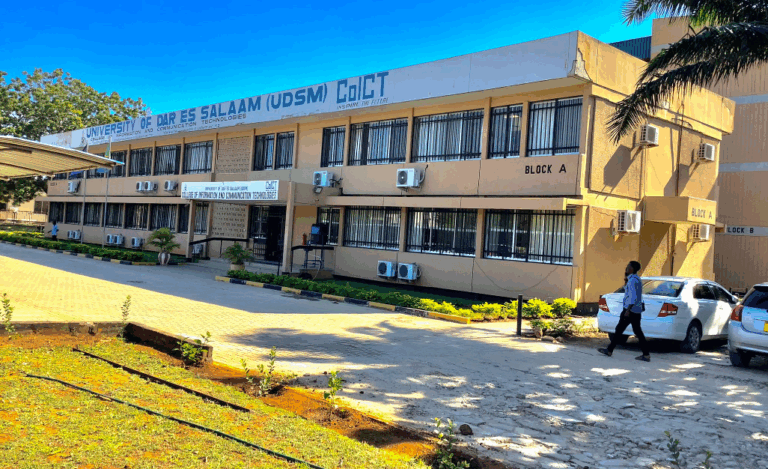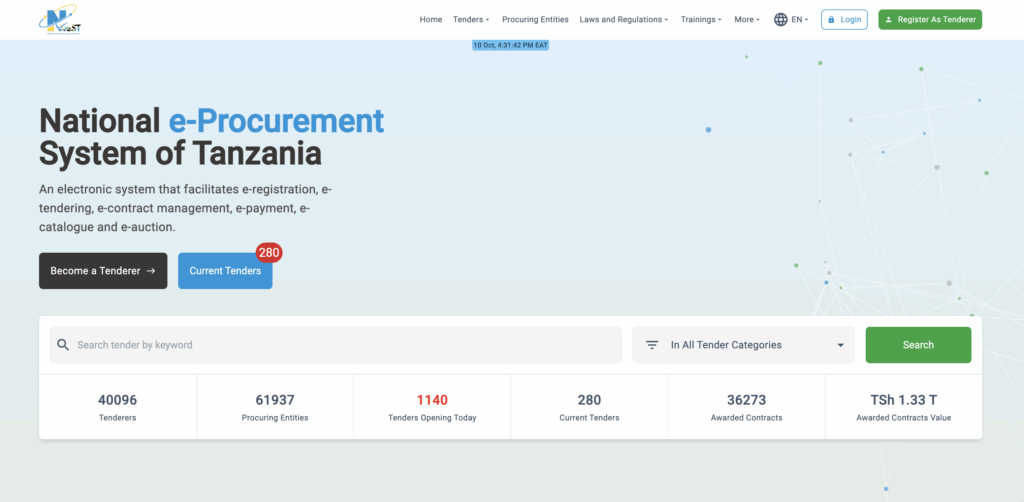Government Institutions are essential pillars under Tanzania’s Ministry of Industry and Trade. They implement policy, regulate industry, and support businesses; together they ensure that the industrial and trade sectors operate fairly, efficiently, and in line with national development goals.
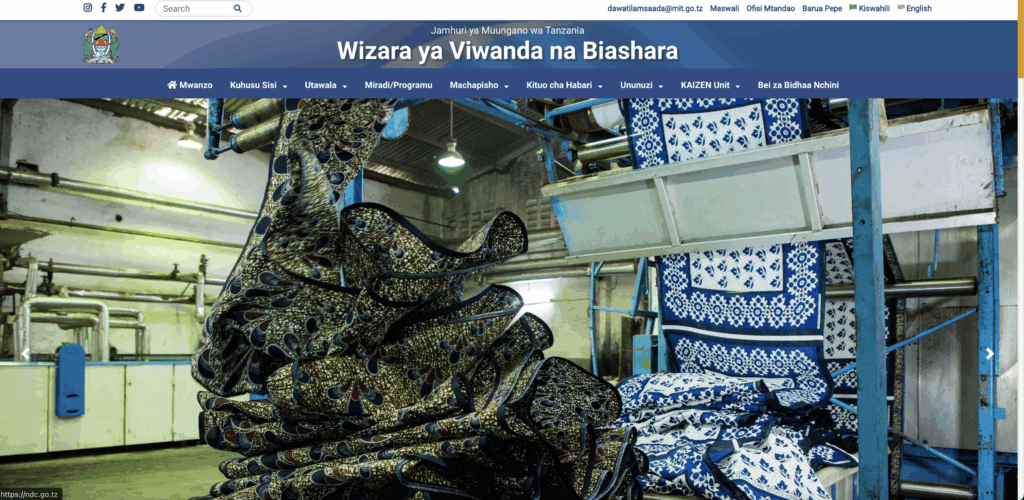
Background History of Key Institutions
Small Industries Development Organization (SIDO)
SIDO was established in October 1973 as a parastatal organisation under what was then called the Ministry of Trade, Industry and Marketing. Its creation responded to the need for developing the small industry sector in a centrally planned economy, which was the context in Tanzania at that time. In 1988 SIDO was restructured to improve efficiency, effectiveness, and its long-term sustainability.
Tanzania Bureau of Standards (TBS)
TBS was established by the Standards Act No. 3 of 1975 (which later became effective in April 1976) as the National Standards Institute. It was renamed Tanzania Bureau of Standards through an amendment (Act No. 1 of 1977). Later the Standards Act No. 2 of 2009 replaced older legislation to give TBS more powers in carrying out its mandate.
Business Registrations and Licensing Agency (BRELA)
BRELA is a Government Executive Agency established under the Executive Agencies Act No. 30 of 1997; it was published in October 1999 and officially inaugurated on the 3rd of December 1999. Its creation aimed at improving business regulation and licensing, formalising businesses, registering trademarks, patents, companies etc.
Other institutions like Fair Competition Commission (FCC), TEMDO (Tanzania Engineering and Manufacturing Design Organization), TANTRADE, WMA (Weights & Measures Agency) etc. each came into being under different legislation or institutional reforms to address specific functions in trade, industrial research, regulation or standards. For example TEMDO was established under its own act in 1980 to promote engineering design and manufacturing design.
Duties & Responsibilities
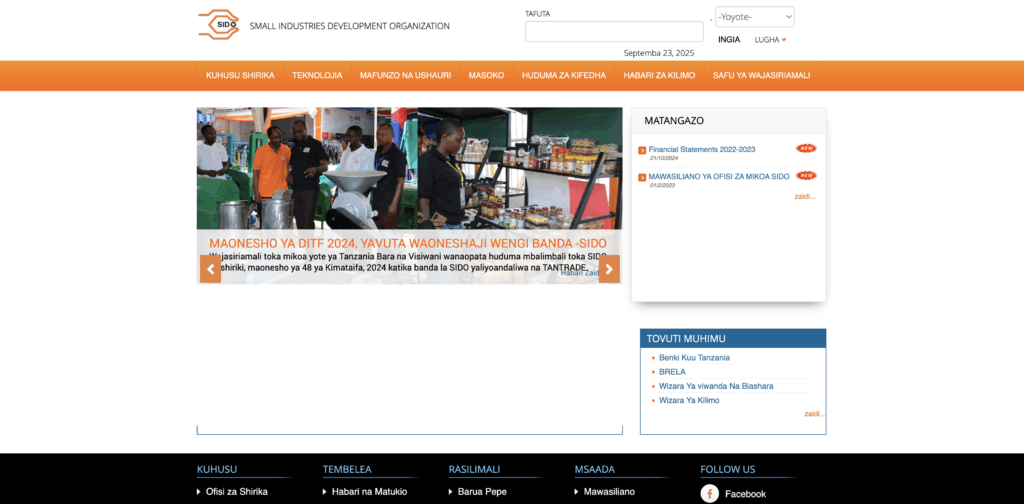
- Support development and competitiveness of small and medium industries (SMIs / SMEs) in both rural and urban settings.
- Operate programmes such as Industrial Estates, Technology Development Centres, Training cum Production Centres, and hire-purchase schemes for equipment.
- Facilitate technology transfer, assist with marketing, help build capacity, provide direct support to enterprises.
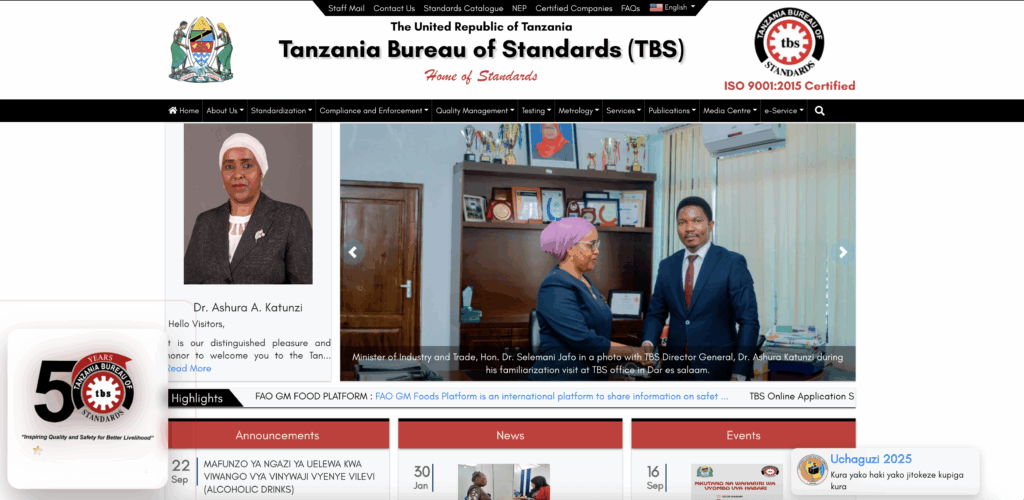
- Set and enforce national product and service standards; ensure quality control of industrial and commercial goods.
- Provide certification for SMEs, assist them to meet domestic, regional and international market standards.
- Enforce food and cosmetic product registration responsibilities to enhance consumer protection.
- Collaborate with other regulatory bodies to streamline the business environment and reduce multiple regulatory burdens.
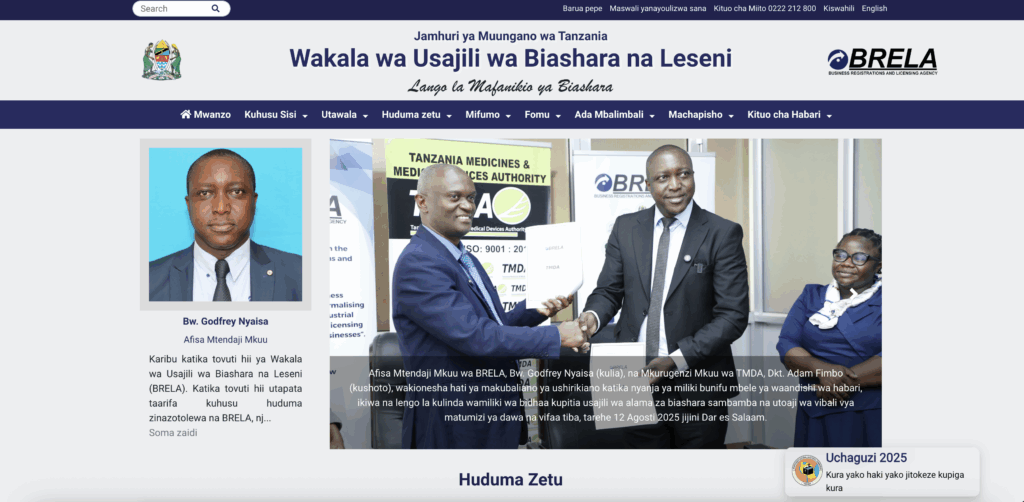
- Register companies, business names, trade/service marks, patents.
- Issue industrial licenses and monitor compliance of entities under its registration/licensing mandates.
- Process disputes related to trademarks, patents, business name registrations.
- Modernize registration through online systems
WMA (Weights & Measures Agency)
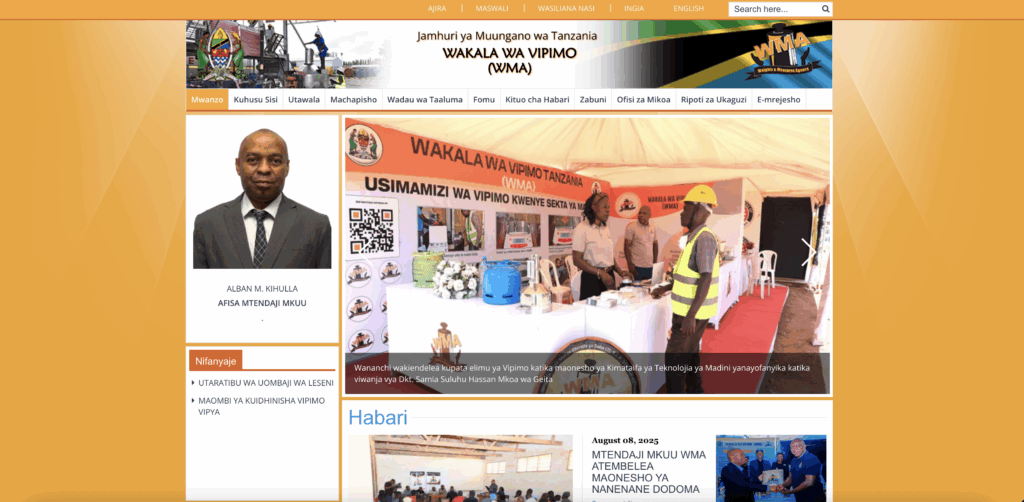
- Protect consumers in trade, safety, health and the environment in relation to legal metrology.
- Approve measuring instruments, control their use in trade and public/private transactions to ensure correct measurements.
- Monitor pre-packaging of products and ensure measuring instruments conform to approved designs and accuracy.
Fair Competition Commission (FCC)
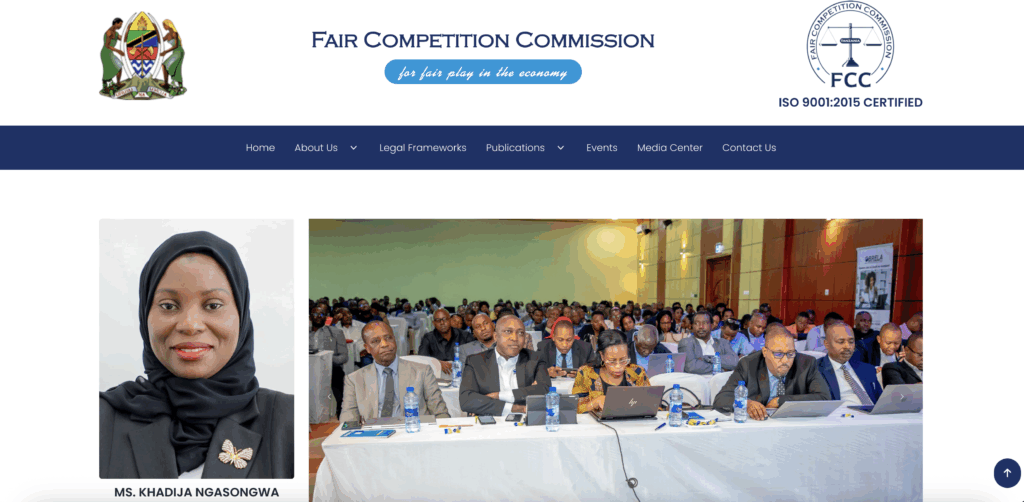
- Enforce laws on fair competition; prevent anti-competitive practices and monopolies; protect consumers from unfair, misleading or restrictive trade practices.
- Regulate Standard Form Consumer Contracts; receive and adjudicate consumer complaints; create awareness among suppliers and the public.
TEMDO (Tanzania Engineering and Manufacturing Design Organization)
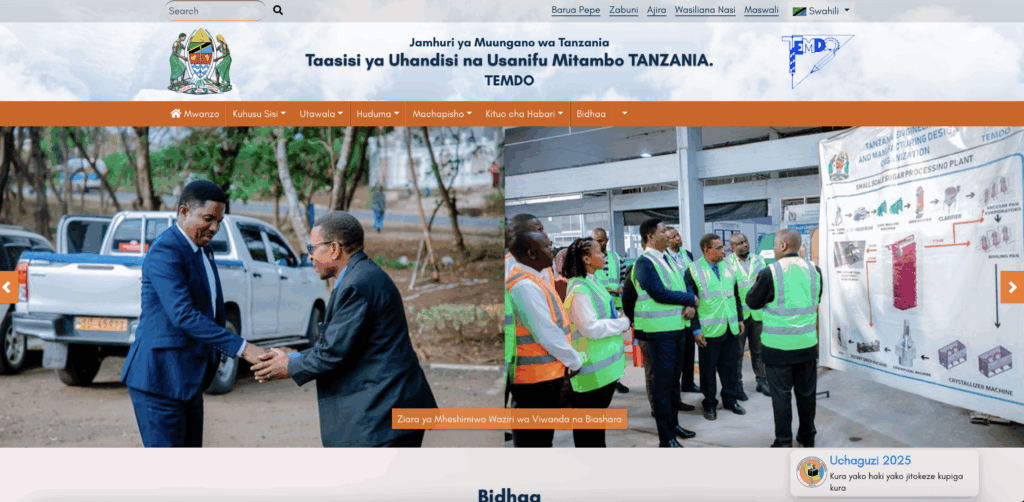
- Design and development of machinery and technology; support innovation in engineering and manufacturing design.
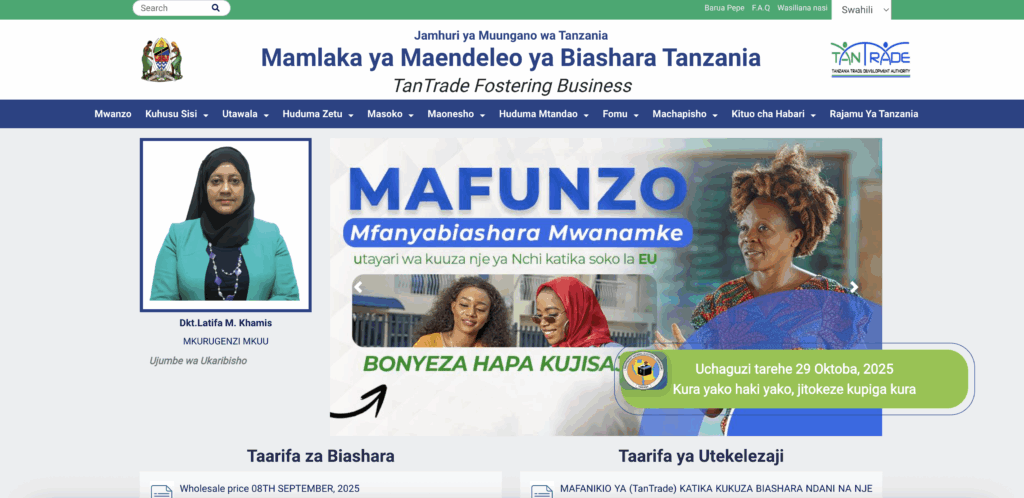
- Responsible for export promotion, trade facilitation, supporting Tanzanian industries in export markets.
Achievements
These institutions have recorded various successes over the years:
- BRELA streamlined business registration, introduced online services (ORS / OBRS)
- which reduced time and cost for registration of companies, patents, trademarks etc.
- TBS has enabled many SMEs to certify their goods, often free of charge, enabling access to regional markets like EAC and SADC.
- SIDO has helped set up industrial estates, technology and training centres that have built capacity among local small industries. Its restructuring has improved service delivery and relevance.
- WMA has improved measurement enforcement in trade, reducing cases of false measurements; improved consumer trust in measuring tools.
- FCC has prosecuted or regulated cases of anti-competitive behaviour, counterfeit goods, enforced consumer protection regulations
